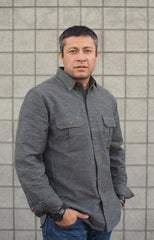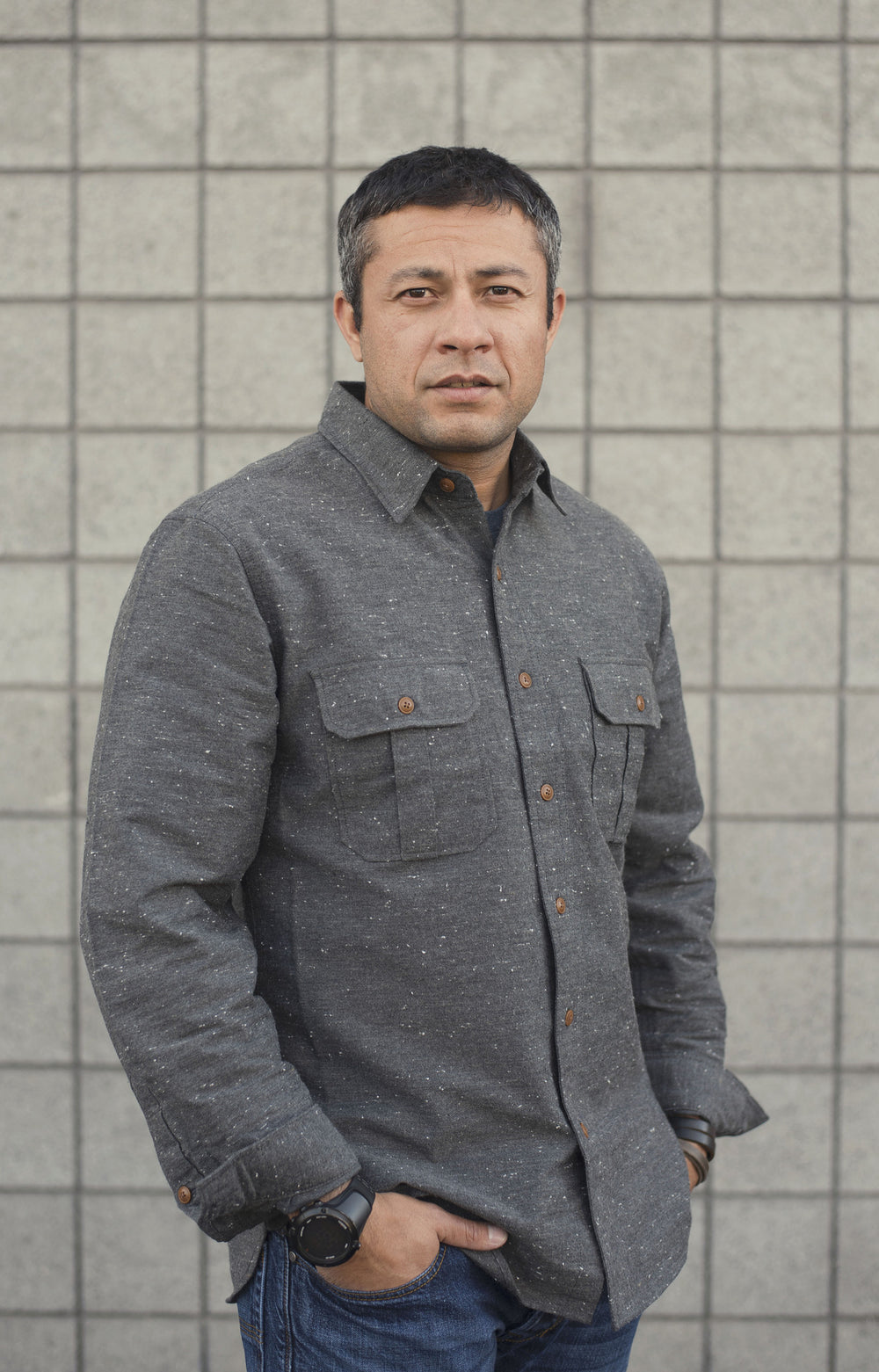For the month of November we’re pleased to have Isaac Childs, the founder and CEO of Rustico Leather, as our Featured Maker. Based out of Utah, Rustico creates handmade leather journals, cord wraps, wallets, and coasters and is focused on the idea of “living authentically.” We spoke to Isaac about Rustico’s founding and philosophy:

Quinstance: Thank you very much for taking the time to speak with me Isaac. First up, tell me a little about Rustico’s founding. I understand it involved a series of travels?
Isaac Childs: Yeah that’s right. The beginning of Rustico began with me; I like to write in notebooks and journals, I was traveling with buddies, and so I’d have all these notebooks and journals with me. Most of those aren’t designed to go in a backpack. We went on a trip to Montana and it fell apart in my backpack. So we decided to take some courses in bookbinding and we started designing notebooks. We designed and made our journals so that they would be pretty much indestructible. After a while, we started a relationship with catalogs and people started asking about other leather products…
It really did start with the notebook, but there are a few more details behind that. We also took some marketing classes--this was in 2001, when domain names were new. We built a website based around the products. Then Disney called us. They wanted some of our products, and that kick-started the process. I ended school to focus full-time on the business. And Rustico was born.

Q: Why leather? Why does that speak to you as a material more than paper (for example)?
IC: Initially, what I was looking for was something impervious to destruction. It needed to be long lasting. For most of my notebooks and styles, I wanted them to have legacy, to be long term. I wanted it develop a personality, the same way patina forms with skin contact. Leather I gravitated to because, like jeans, it has the opportunity to develop personality.
It is one of the oldest products known to man besides paper and food. It is an amazing material. I like to work with canvas and wood and stone, but leather is versatile and personality-infused. Most of our products have that in mind. We don’t work that much with high polish, because I wanted it to have personality.

Q: What does it mean, in your opinion, to live authentically? Does your focus on handmade fit into that at all?
IC: Yeah, 100%. It lends itself to it. Leather resonates with that part of our lives, that part of our vision. We want it to resonate and to be used to authenticate.
Ultimately, people should recognize who they are.
Q: It says on your website that you never want the business to get in the way of your friendships. That’s a difficult task to be sure. How do you guys manage it?
IC: No, it wasn’t easy. And history, I don’t know how much needs to be shared. It started with three friends as an excuse to snowboard on the weekends, and as it grew we had to figure out how to work together. We were told over and over again that it was a recipe for disaster. Whenever it came down to finances and friendship, we took the high road. At a certain point we realized that it was impossible for us all of us to be chief, and we put the business up for sale. We sold it in 2006. Later on it came back to me, and I bought out my partners. I still consider the others founders and members of Rustico. I still consider them valuable parts of our teams. The friendships come before the finances in business.

Q: What is the process like for designing a product? What do you need to think about before you design to manufacture something?
IC: Our design process has gone through a series of changes, especially over the last 2 or 3 years. We couldn’t make them fast enough. A lot comes from customers, suggestions; it tends towards the reactionary. As we mature we still love to get that information, but now we try to predict what our customers want.
At the start of the process, Matt and I and the sales team will brainstorm the products for the next year and put it on a whiteboard. We organize our ideas by type, and nothing we do is too defined or too polished. It is designed in a rustic fashion and focused on core competencies. Ideas are like a brand new pair of leather shoes, it takes time to wear them in and become comfortable with them. Our style is very simplistic. It is function over fashion: that is a mantra here. If it needs one pocket it gets one, and only maybe one at that.

All those factors go into our products. Sometimes we are swayed by outside forces, but usually we just make what we want. We aren’t looking for something here today, gone tomorrow. It is proven in our motto.
We’ve been doing this for 15 years, before Made in the USA was a concept. Some of products from those early days are still going strong. They aren’t flash in the pan.
The final word for us is that we’re always looking for products made, not produced. A human touch is essential. Products produced, rather than made, is where the consumer market is going. There is some creativity in those products, sure. But it is hard to come by.
Check back in a few days for the second part of our interview!

